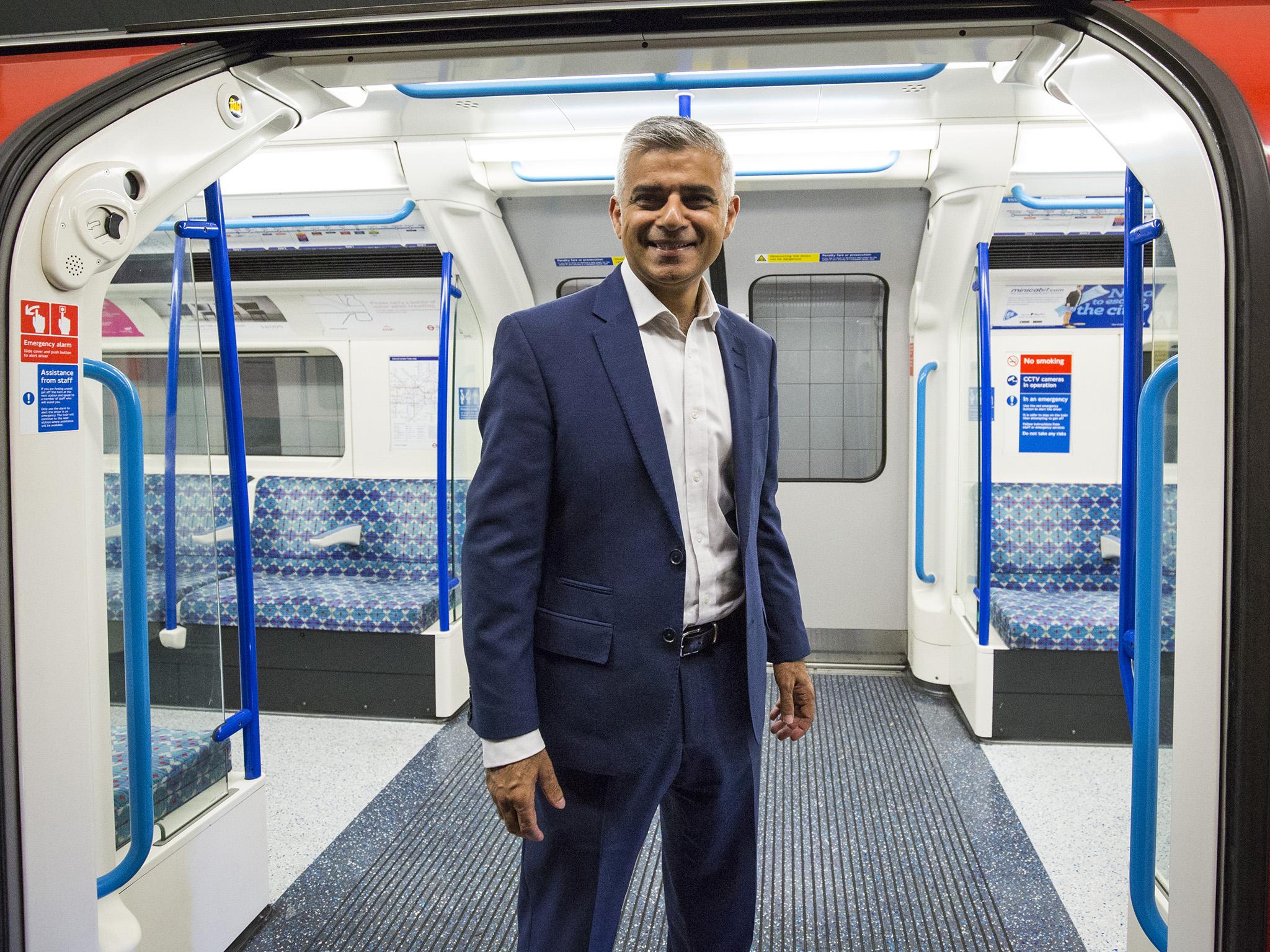Too many Londoners have died as a result of air pollution – so we’re doing something about it
I’m introducing the new toxicity charge – a T-charge – to ensure we rid our streets of vehicles whose fumes are doing the most harm to Londoners


Your support helps us to tell the story
From reproductive rights to climate change to Big Tech, The Independent is on the ground when the story is developing. Whether it's investigating the financials of Elon Musk's pro-Trump PAC or producing our latest documentary, 'The A Word', which shines a light on the American women fighting for reproductive rights, we know how important it is to parse out the facts from the messaging.
At such a critical moment in US history, we need reporters on the ground. Your donation allows us to keep sending journalists to speak to both sides of the story.
The Independent is trusted by Americans across the entire political spectrum. And unlike many other quality news outlets, we choose not to lock Americans out of our reporting and analysis with paywalls. We believe quality journalism should be available to everyone, paid for by those who can afford it.
Your support makes all the difference.London’s toxic air is a silent killer and is now a public health emergency. More than 9,000 Londoners die prematurely every year as a result of long-term exposure to air pollution. Research shows 438 schools in the capital are in areas which exceed legal pollution levels, and that there are children growing up in inner London whose lungs are up to 10 per cent smaller than their peers.
Enough is enough. We have a responsibility to take urgent action to protect the health of all Londoners. That’s why today I’ve announced the latest action I am taking - the introduction of a new toxicity charge – a T-charge – on the most polluting vehicles from 23 October this year.
Diesel and petrol vehicles that do not meet the Euro 4 emission standard – typically registered before 2006 – will have to pay an extra daily £10 charge to come into central London. This means that those driving into the Congestion Charge zone between 7am and 6pm on weekdays, in one of these polluting vehicles, will have to pay £21.50 in total. To help drivers, I am also launching a free-to-use online vehicle checker on the Transport for London website, which will tell people whether their vehicle will be affected by the new T-Charge.
Today is the 14th anniversary of the Congestion Charge and, much like its introduction, the new T-Charge is desperately needed to change behaviour and ensure we rid our streets of vehicles whose fumes are doing the most harm to Londoners. But we have to face the reality that if we are going to come close to tackling air pollution in London, we have to tackle the problem of dirty diesels too.
That’s why, in addition to the T-charge, I will be consulting Londoners on introducing a central London Ultra Low Emission Zone (ULEZ) in 2019, as well as expanding the ULEZ up to the North/South Circular for cars and vans, and London-wide for buses, coaches and lorries. When introduced, these additional measures would impose an even stronger ‘Euro 6’ emission standard for diesel vehicles, meaning diesel cars could not be more than four years old in 2019 without incurring a charge.
I have also doubled funding on tackling air pollution to £875million over the next five years.
Of course, I expect Transport for London to lead by example, so I’m transforming London’s bus fleet, putting a stop to procuring diesel double-deck buses from 2018 and switching to cleaner hybrid or zero-emission buses instead. Combined, all these measures will help reduce the number of the most polluting vehicles on our streets, including the dirtiest diesels, long before other world cities.
As Mayor, I will continue to do everything in my power to address and tackle this public health emergency, but it’s not something I can do alone.
We also need the Government to step up and make a real difference in helping to improve the health of Londoners and people across the country. This means introducing a national diesel scrappage fund - like the one I recently proposed, which would be the most cost-effective solution to delivering major emission reductions at the same time as helping the thousands of motorists who were wrongly incentivised into buying dirty diesel cars in the first place.
It was more than 60 years ago that the Clean Air Act became law, which was passed following the killer London Smogs of the 1950s. It made a huge difference to life in London – and saved countless lives. Today we face another pollution emergency. So for the good of the health of the current population and for future generations to come, the Government should also introduce a new Clean Air Act to help tackle non-transport sources of pollution, like construction, housing and river vessels. It is only by working together, and tackling all the sources of pollution, that we can save lives and give our children the safe, clean air they deserve to breathe.
Join our commenting forum
Join thought-provoking conversations, follow other Independent readers and see their replies
Comments